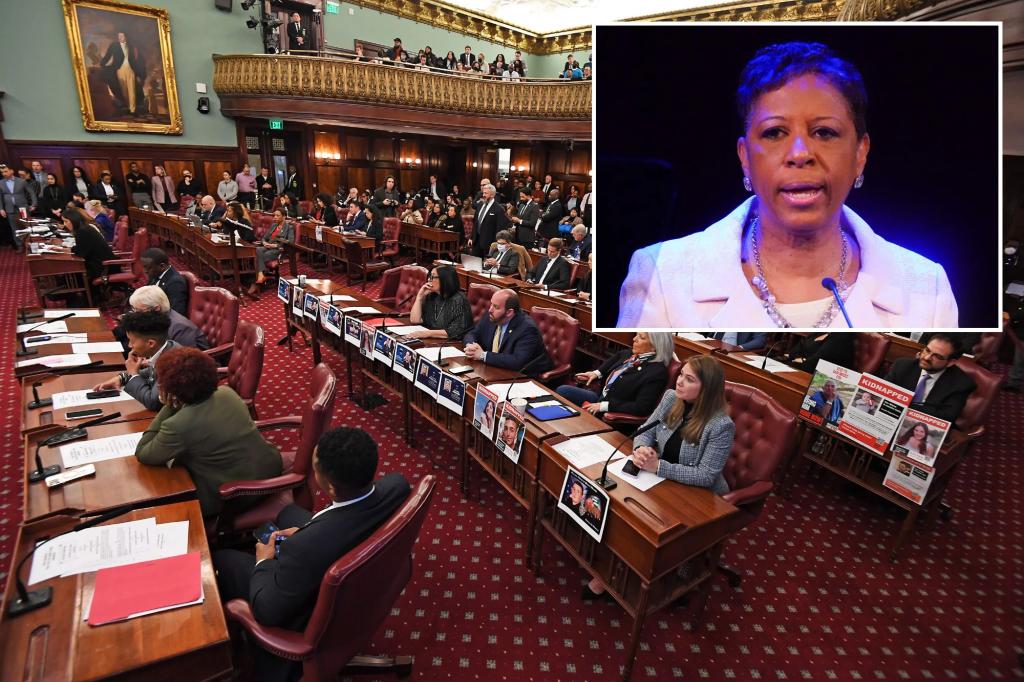City Council members have been instructed to remove political signs, including Israeli hostage posters and flyers calling for a ceasefire in the Middle East, from their desks by Speaker Adrienne Adams. The move has sparked outrage among council members, with Speaker Adams proposing the plan in an attempt to reduce tensions over the Israel-Hamas conflict. A memo from the council’s general counsel was sent out on Wednesday, stating that members are not allowed to display signs or flags on furniture in the chamber or during meetings without prior approval from the speaker.
The decision to remove political signs has highlighted the ongoing debate over freedom of expression within the City Council. Some members have expressed concern over the limitations being placed on their ability to voice their opinions on sensitive political issues. The move by Speaker Adams is seen as a way to prevent tensions from escalating between lawmakers who hold differing views on the Israel-Hamas conflict. The ban on displaying signs or flags without prior approval has raised questions about the balance between maintaining decorum in the chamber and allowing members to express their opinions.
Despite the backlash from council members, Speaker Adams is standing by her decision to restrict the display of political signs. Adams is aiming to foster a more civil and respectful atmosphere within the council, particularly in light of the divisive nature of the Israel-Hamas conflict. The move is part of ongoing efforts to promote unity and prevent further conflicts among council members with differing political views. Speaker Adams’ plan reflects a desire to prioritize professionalism and decorum in the council’s proceedings, while acknowledging the need for open dialogue on important political issues.
The ban on political signs in the City Council has sparked a broader discussion on the limits of free speech in government settings. While some argue that restrictions on displaying signs can help maintain order and prevent disruptions during meetings, others view the move as an infringement on the right to express political opinions. The debate over free speech in the council reflects broader tensions within society over the balance between protecting individual rights and ensuring respectful discourse. It remains to be seen how council members will navigate the restrictions on displaying political signs and flags in light of these competing priorities.
Overall, the decision by Speaker Adams to restrict the display of political signs in the City Council has led to significant controversy and debate among members. The move reflects tensions over freedom of expression within the council and the need to maintain a respectful atmosphere during meetings. While some view the ban as necessary to prevent conflicts and promote professionalism, others see it as limiting the ability of council members to voice their opinions on important political issues. The ongoing discussion over the balance between free speech and decorum in the council underscores the challenges of fostering open dialogue in a diverse and politically charged environment.


